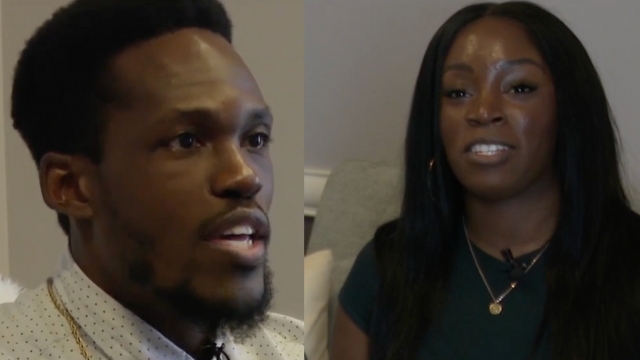Resilience is what both Gregory Noel and Stormey Nielsen say was necessary for them to navigate being Black in a predominantly White state like Utah.
"I just looked up from my paper and I looked around the room and I was the only Black person in the classroom... [in] my upbringing from Miami to Vegas to Utah, that was the first time I was ever the only Black person in a space," said Noel, recalling one of his first experiences in Utah while pursuing his undergraduate degree.
He and Nielsen said their first-hand experiences with racism and feelings of isolation in their communities took a toll on their mental health. Now, they are both mental and behavioral health professionals.
"I'm actually a transracial adoptee, so I grew up in not only a White community but a White household as well," Nielsen said. "Navigating race brought its challenges because there was a lot of education that needed to be done and a lot of scenarios that pop up, and you can't go home and talk to your parents about it."
The two said they recognize the barriers Black Americans face when it comes to accessing mental health resources. Some Black Americans experience race-related trauma and PTSD, but mental health is often a taboo topic in the Black community, according to the American Psychological Association.
"Oftentimes what happens in our community is we'll go through something hard and then we'll get told by maybe an elder or someone else in our family, 'We've been through worse — what are you complaining about it?'" Noel said. "Sometimes we'll internalize that and do that to ourselves."
"We've been experimented on, right? So the trust for Western medicine in general, it's not there," added Nielsen. "When you look at diagnoses and read the DSM-5, those diagnoses don't fit our people either."
That’s part of the reason the American Foundation for Suicide Prevention rolled out a new education program this month to reduce cultural stigma, foster conversations about mental health and raise awareness of suicide prevention for individuals who identify as African American.
Alongside stigmas and structural disparities, Black Americans are often unable to find therapists who look like them or share their cultural experiences.
According to the most recent data from the American Psychological Association, only 4% of psychologists, 2% of psychiatrists and 22% of social workers nationwide are African American.
"Some of the reasons us Black folk go to therapy is to talk about some of the racism and discrimination we're going through because it gets heavy, so I think having a space to talk about it where I'm not going to sit and question you — I see you, I understand the struggle you're going through and what it feels like," Nielsen said.
Since Noel and Nielsen became a licensed therapist and clinical social worker, respectively, they've seen a wide array of clients, but they say a majority of their clients come from the BIPOC community.
"It's about being intentional and tailoring our services to make sure that anyone that comes through our door is being treated with kindness, humility, empathy, and compassion," Noel said.
Noel and Nielsen are just two of many clinicians in the Beehive State who are creating more representation in their practices and the community.
"Find your safe spaces. We all have to go to work every day, we're going to run into all kinds of people on the day-to-day, but if you at the end of the day can know who your community is, who your safe spaces are, it takes the load off," Nielsen said.
This story was originally published by Darienne DeBrule at Scripps News Salt Lake City.




